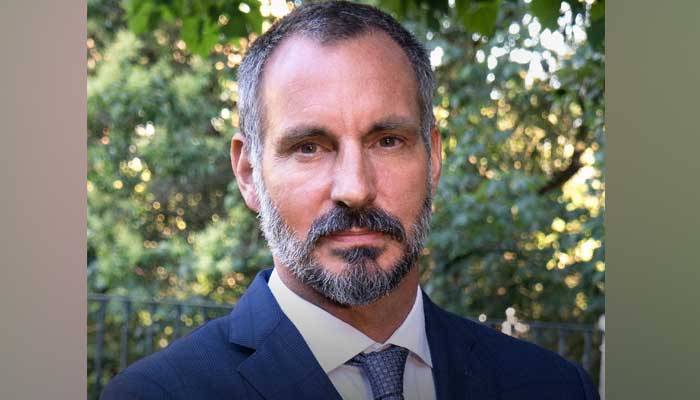
Rahim-Al Hussaini, the eldest son of Prince Karim Aga Khan, has succeeded him as the 50th spiritual leader (Imam) of around 15 million Shia Imami Ismaili Muslims residing in over thirty countries worldwide. Prince Karim Aga Khan IV passed away in Lisbon at the age of 88, as announced by the Aga Khan Development Network on Tuesday. According to the late spiritual leader's will, he appointed his son, Prince Rahim, as the 50th Aga Khan and his successor. This announcement was made through a press release issued from the Diwan of Ismaili Imamat in Lisbon, Portugal.
The will was read in the presence of Aga Khan's family members and key leaders of the Ismaili community. Rahim Al Hussaini Aga Khan was born on October 12, 1971, in Geneva, Switzerland. He remained actively associated with his father in improving the quality of life for people worldwide.
Rahim graduated from Brown University in the USA in 1995 with a degree in Comparative Literature. He later obtained a degree in management and administration from IESE Business School, University of Navarra, in Barcelona, Spain. In recognition of his services in preventing climate change effects and improving the quality of life, he was bestowed with the Nishan-e-Pakistan award by President Asif Ali Zardari last year.
The Legacy of Prince Karim Aga Khan
The Muslim world is mourning the loss of Prince Karim Aga Khan, a devoted leader, iconic philanthropist, and true social reformer. As the 49th spiritual leader of the Shia Ismaili sect, he played a pivotal role in improving lives in underdeveloped countries through initiatives in health, education, environment, social, and economic development.
Prince Karim Aga Khan was born in Geneva, Switzerland, on December 13, 1936, to Sir Sultan Muhammad Shah Aga Khan, a far-sighted Muslim leader. At 21, he succeeded his grandfather as spiritual leader, inheriting a legacy of social work, philanthropy, and a vision for the Muslim Ummah.
The Aga Khan Development Network (AKDN) brought him closer to communities worldwide living in substandard conditions. During his early years as spiritual leader, he visited various countries, gaining firsthand knowledge of challenges faced by Muslims globally.
Prince Karim Aga Khan emphasized unity and coordination in Muslim development. On March 12, 1976, he underscored the need to follow the Holy Prophet's teachings and basic Islamic principles for consistent development.
He guided his followers to be loyal to Pakistan and dedicate their skills to its development. Discussing Islam's significance, he said, "Islam is a way of life, guiding every aspect of daily existence."
Prince Karim Aga Khan frequently visited Pakistan, facilitating government development projects in health, education, tourism, and social development. He established the first private university in medical science in 1983.
As a leader of the Shia Ismaili community, he considered education a key instrument for social revolution and poverty alleviation. He opened schools and colleges in underdeveloped areas, boosting literacy rates and empowering young people.
Pakistan's Prime Minister Mian Shehbaz Sharif, Justin Trudeau of Canada, and representatives of the UN paid tribute to Prince Karim Aga Khan's dedication to humanity and visionary approach.
He established the Aga Khan Trust for Culture to preserve Muslim heritage, evaluating and inspecting buildings depicting Muslim architecture and culture. He received numerous awards and honorary degrees from over 30 countries.
Prince Karim Aga Khan advocated for Islam and its moral values during times of global turmoil. He supported Pakistan during challenging times, providing assistance during flash floods and collaborating on CPEC.
Throughout his life, he preached peace and pluralism. In 2016, he emphasized the significance of cosmopolitan ethics in a fragmented world. He foresaw the consequences of climate change, leading AKDN and Ismailia Civic to plant trees in remote Pakistani areas.
Though Prince Karim Aga Khan has passed away, his legacy as a change-maker and distinguished Muslim leader will endure.
Tributes on Social Media
Social media platforms have been flooded with tributes to the late Muslim leader, Prince Karim Aga Khan, for his remarkable services. Journalists, writers, poets, and social activists have taken to Facebook, Instagram, and other platforms to express their condolences to the late leader, who transformed lives through development projects and relentless social work.
Mubashir Zaidi wrote, "Prince Karim Aga Khan's passing is not just a loss for the Ismailis, but for all of us. He was a great man, not just because he was peace-loving and did philanthropic work, but because he created a system. The imam may change, but the Ismailis won't."
Singers Saif Samejo and Shehzad Roy, among others, have joined voices with Zaidi in paying tribute to the late leader.
Gilgit-Baltistan Announces 3-Day Mourning for Prince Karim Aga Khan
The Government of Gilgit-Baltistan has announced a public holiday on Thursday, February 6, 2025, to mourn the death of Prince Karim Aga Khan. Additionally, a three-day mourning period was declared by the provincial government through a notification issued on Wednesday.
In Sindh, the District Bar Association of Sujawal issued a condolence reference to pay tribute to the late spiritual leader. Business activities remained suspended in areas with significant Ismaili populations, including Sujawal, Badin, Thatta, Hyderabad, Tando Muhammad Khan, and Karachi.

